Ireland vs England preview: The making of Chris Robshaw
Dyslexia, doing stand-up, criticism of his leadership – the England rugby union captain tells Hugh Godwin, ahead of Sunday’s big Ireland clash, that he is used to challenges
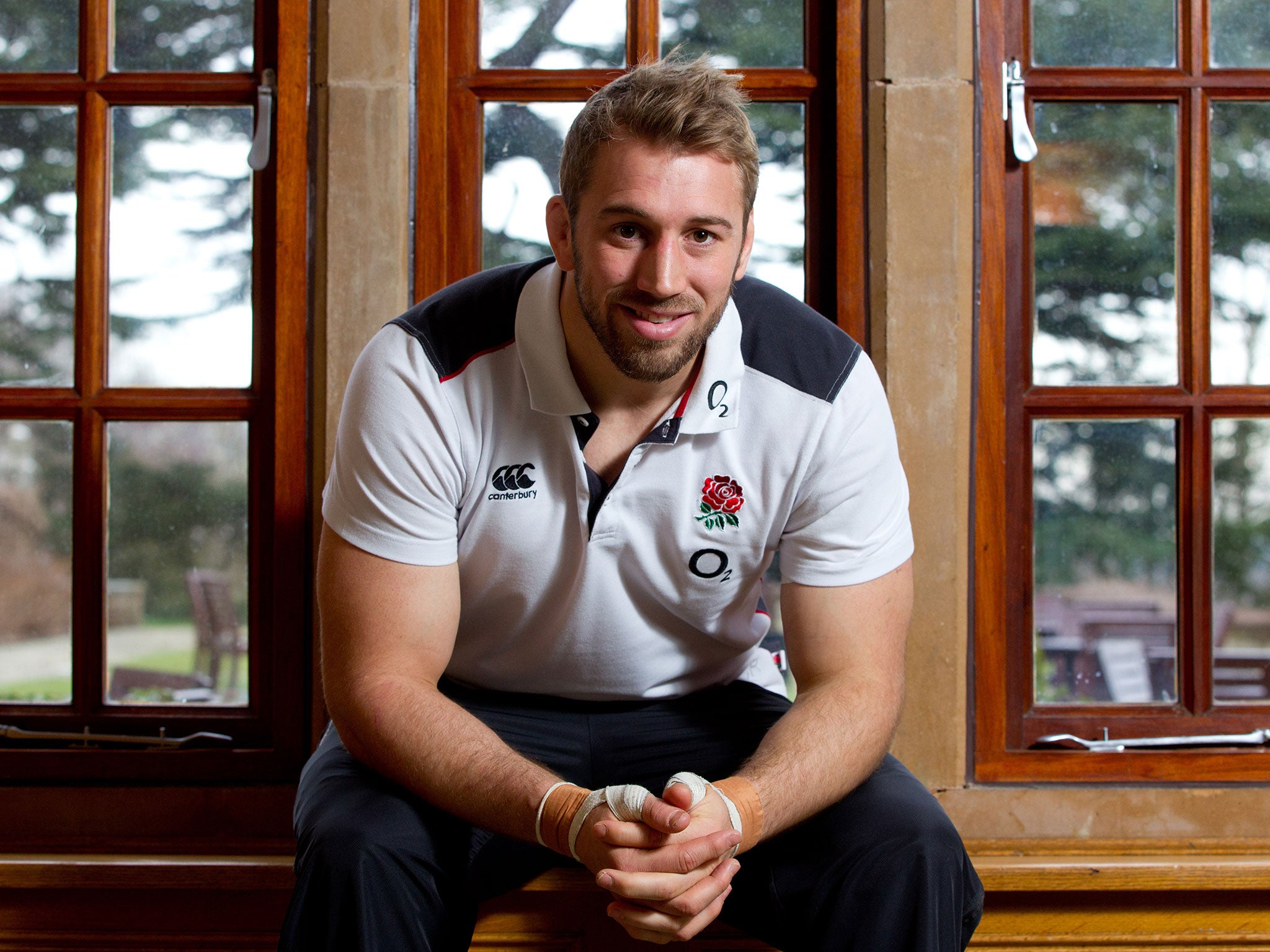
Ask Chris Robshaw the best way to make him laugh, a few days before he captains England in this afternoon’s potentially epoch-making match in Ireland, and he stares at the ceiling of the oak-panelled room where we meet. The thick white wrapping of strapping on his huge upper arm indicates the next training session is nigh. Still, he mulls the question over, seeking to provide a genuine answer. “I went to see Jack Whitehall live recently,” is the reply. “I like a bit of stand-up. Dry humour, I like: the American Office, Peep Show, stuff like that. Awkward humour.”
Robshaw tried stand-up comedy once, awkward enough for most of us and even more so for him, rehearsing and performing a script as a lifelong sufferer of dyslexia. It was not with designs on a future occupation – he has a coffee-shop business on the go and, if he becomes a winning England captain in the World Cup being staged in this country in September and October, a lifetime of lucrative personal appearances awaits.
He did it to force himself “out of the comfort zone”. He has always pushed himself to improve. “I’ve had acting classes too,” Robshaw says. “In the long run it’s been extremely beneficial for me, being able to stand up in team meetings, and cope with public speaking. It’s a fear for a lot of people but I have conquered it.” On that night on a pub stage he made sure he was the butt of his own joke, the old one about the dyslexic who went to a toga party dressed as a goat. Haha, lol.
He continues: “People ask about captaincy and it is about thinking clearly but also about jumping in and doing it. You learn through trial and error. Making big decisions in the last five minutes? It’s exciting. When I watch a rugby game, and there’s a penalty, I look at the clock and think what I would do, and try to master it.”
Anyone who has seriously doubted Robshaw – and that has included himself – has tended to be confounded. “As a kid I was quite big, so I enjoyed the physical side of rugby,” he says. “And it allowed me to really focus on something. When kids are dyslexic they need an avenue to be good at something, to be rewarded. You see a lot of dyslexic people going into sport, into music or art. For me that was my escape from the classroom.
“I went to Millfield School where they specialised in dyslexia and the teachers were good at that, though you don’t see it at the time – I probably hated it. I remember when you had to read a line each, as it went around the classroom, and hating that. You’re in your break-time having to do extra work and all your friends are out playing. It’s just a bit slower taking the knowledge in, whether it’s reading stuff, or writing. In the long run it’s been extremely beneficial for me.”
The stage on Sunday is Dublin’s Aviva Stadium. Each side needs a win to stay on course for the Grand Slam, which would be England’s first since 2003 and just their second in 20 years. Before the win over Wales that got England’s Six Nations Championship up and running, Robshaw’s stubborn refusal to leave the Millennium Stadium tunnel until it suited his team appeared to cement him as England’s leading man. But it has never come easy.
At 18, Robshaw signed for Harlequins on a £4,000-a-year academy contract. Two years of withering injuries followed. He broke a metatarsal in his left foot, then the fibula in his right leg, then he ruptured the anterior cruciate ligament in his left knee. Harlequins were entitled to get shot of him but Dean Richards, then director of rugby, kept faith. The youngster drew support from his family, who in turn had to generate their own collective strength after Robshaw’s father, Alan, died of a heart attack at the age of 40.
His mum Pat is a state-registered nurse who runs two care homes in Croydon, near the Warlingham rugby club in whose comforting surroundings the boys took up the game. Chris is the middle of three brothers: Alex, 31, is a Lloyds city trader on sabbatical on a round-the-world trip with his girlfriend; 26-year-old James works in London in sports hospitality.
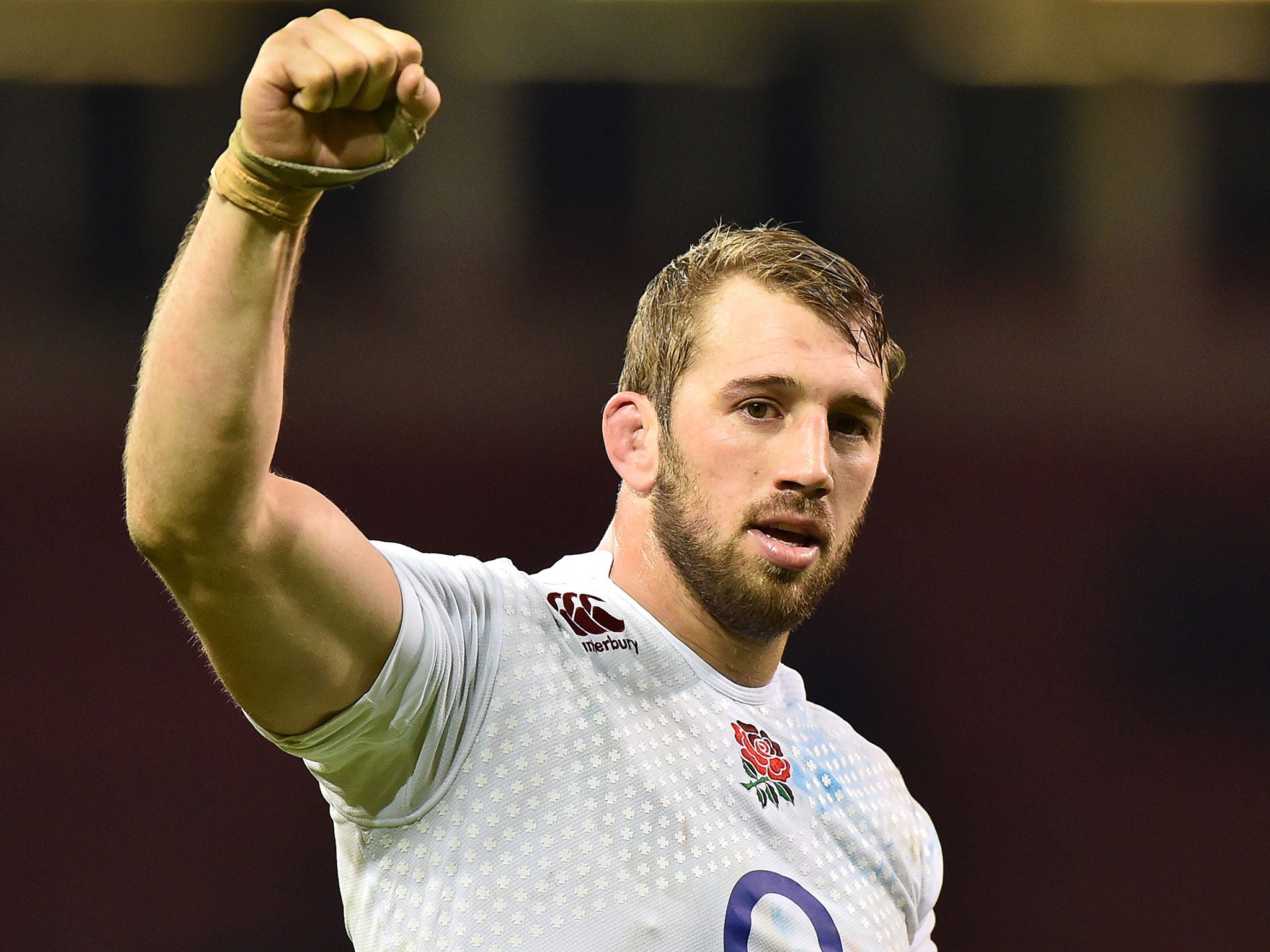
James tells me: “My mum gave Chris a few words, saying ‘you’ve really got to stick to rugby if you want to do it’. I don’t think he had many other plans. Chris has always been a laid-back guy, while very focused on what he does. If we go out to a restaurant Alex would be the one doing the ordering, telling people what’s going on. Chris would be quieter, sitting back a bit – and I guess I’d be the one trying to be the centre of attention.”
Pat is in Ireland already, making a trip of it with Chris’s aunt and uncle, and cousins. At Twickenham matches they raise a big England flag with the best of them.
Robshaw was 10 when he left Cumnor House school in his native south London to go to Millfield, the renowned Somerset hothouse of sport. Steve Shortland was his rugby coach in later years, appointing him first XV captain, and is proud now to share the words he wrote in Robshaw’s final school report: “Chris is a natural leader… he has become the perfect role model within the school… his work-rate in open play in attack and defence is second to none.”
The odds are that Stuart Lancaster, England’s head coach, would write just the same in 2015. But when he gave Robshaw the captaincy in January 2012, it was initially for two matches. The back row was then a wasteland of injuries and retirements. Some believed Robshaw was merely keeping the captaincy warm for the injured Tom Wood, the garrulous Northampton Saints flanker, even though quality judges, including the former England centre Will Greenwood, had long been making flattering comparisons with a back-row genius, Richard Hill.
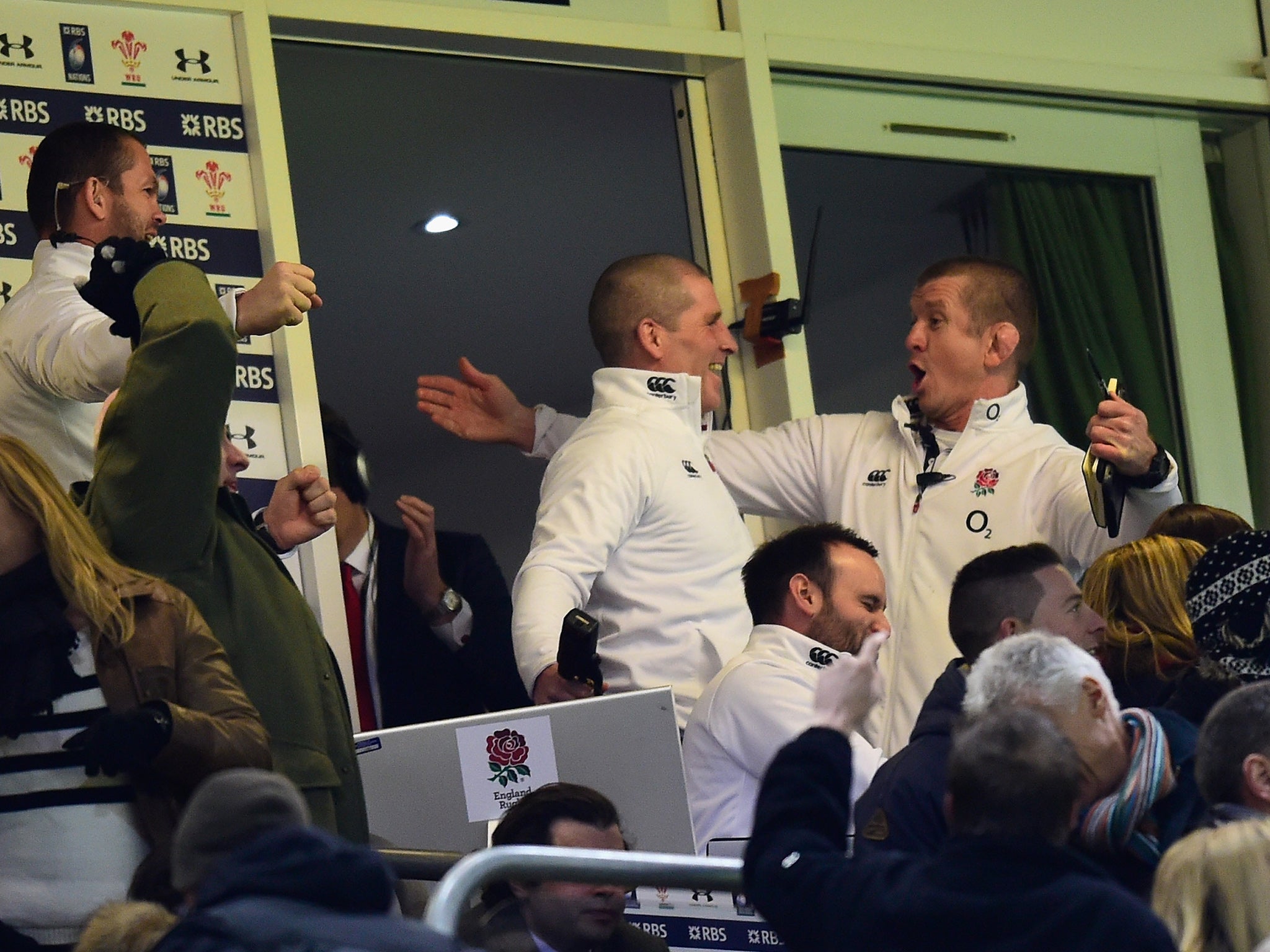
The Robshaw CV was a combination of silver-medal material and gold. He had played only one match for England but almost 150 for Quins; he had won the Premiership player of the year award in 2009, and was fast on his way to the 2012 version. He was no more than a replacement in England Under-21s’ Grand Slam in 2006 and he helped the second-string Saxons win the Churchill Cup in Chicago in June 2008 (on the same day as senior England players in New Zealand were embroiled in allegations over off-field behaviour).
This reporter well remembers noting a match at Northampton on New Year’s Day 2011 when Robshaw outplayed the more talked about Wood, just as he outshone the mighty Sergio Parisse when Quins beat Stade Français in Paris in December 2008, and captained Harlequins to the second-tier Amlin Challenge Cup in 2011, followed by their first Premiership title in May 2012.
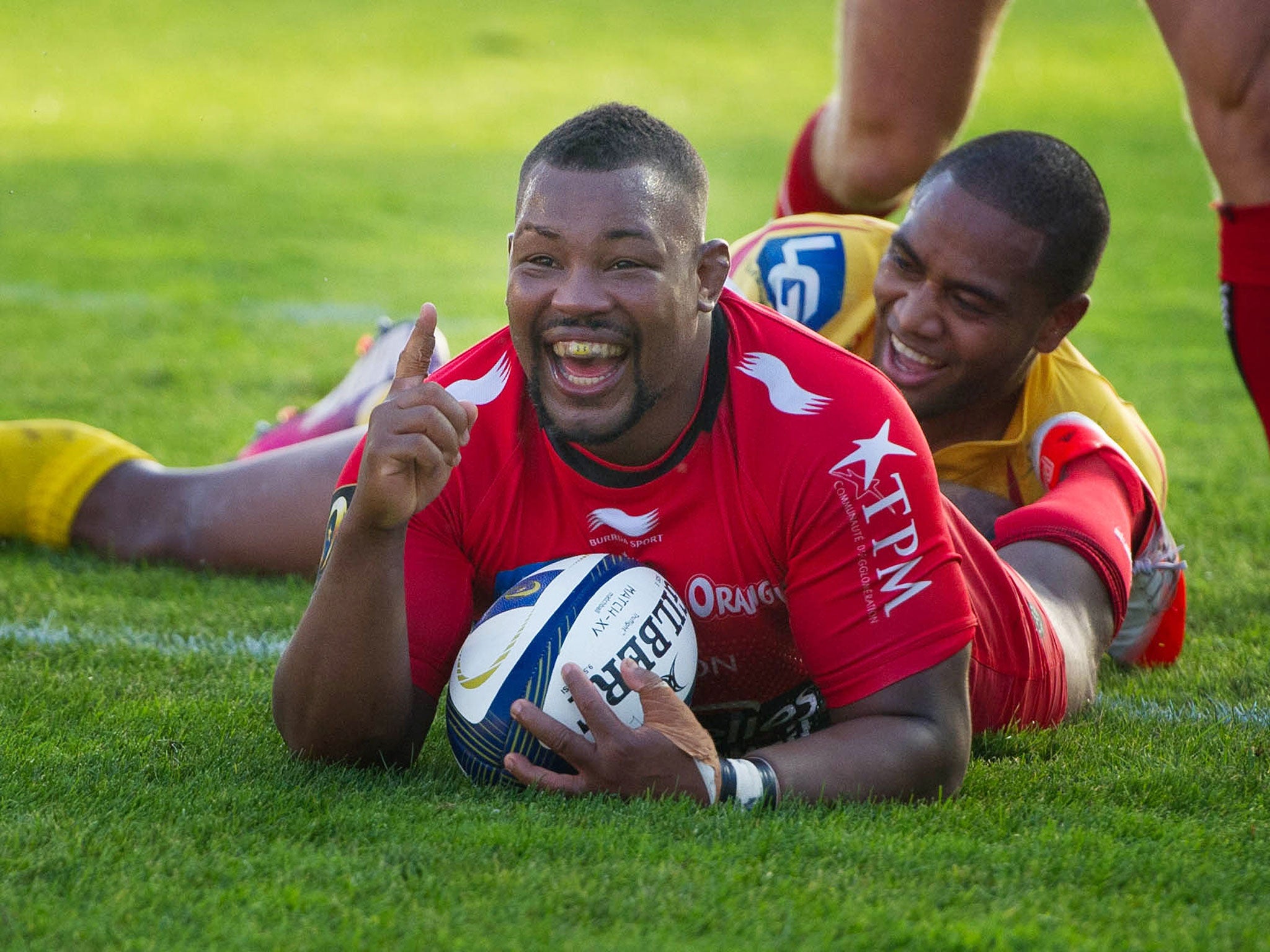
But England were now deploying Robshaw as a tackling, linking flanker; he is neither a flashy openside over the ball such as Neil Back or Steffon Armitage nor a pile-driving defensive hitter such as Joe Worsley.
“As time goes on, your shoulders become a little bit broader,” he says. “There was criticism of me the autumn before last, over a few decisions, and it was pretty tough although I think it’s more about your family and about how they react. I learnt a lot about myself, and a lot about the character of the squad we have here. It was tremendous seeing the guys support me.”
He admits he tried to take on too much when he became Harlequins’ captain in 2010. The club have eased the pressure by releasing him from the club captaincy this season. There used to be an in-joke among team-mates about teasing the earnest skipper to get the team bus stopped at the next service station even if they might be only 40 minutes from the hotel, or checking what colour shoes they needed to be wearing. But they love him, really, because he has never stopped grafting, consulting over leadership with former international captains Lawrence Dallaglio and Sean Fitzpatrick, and cricket’s Andrew Strauss.
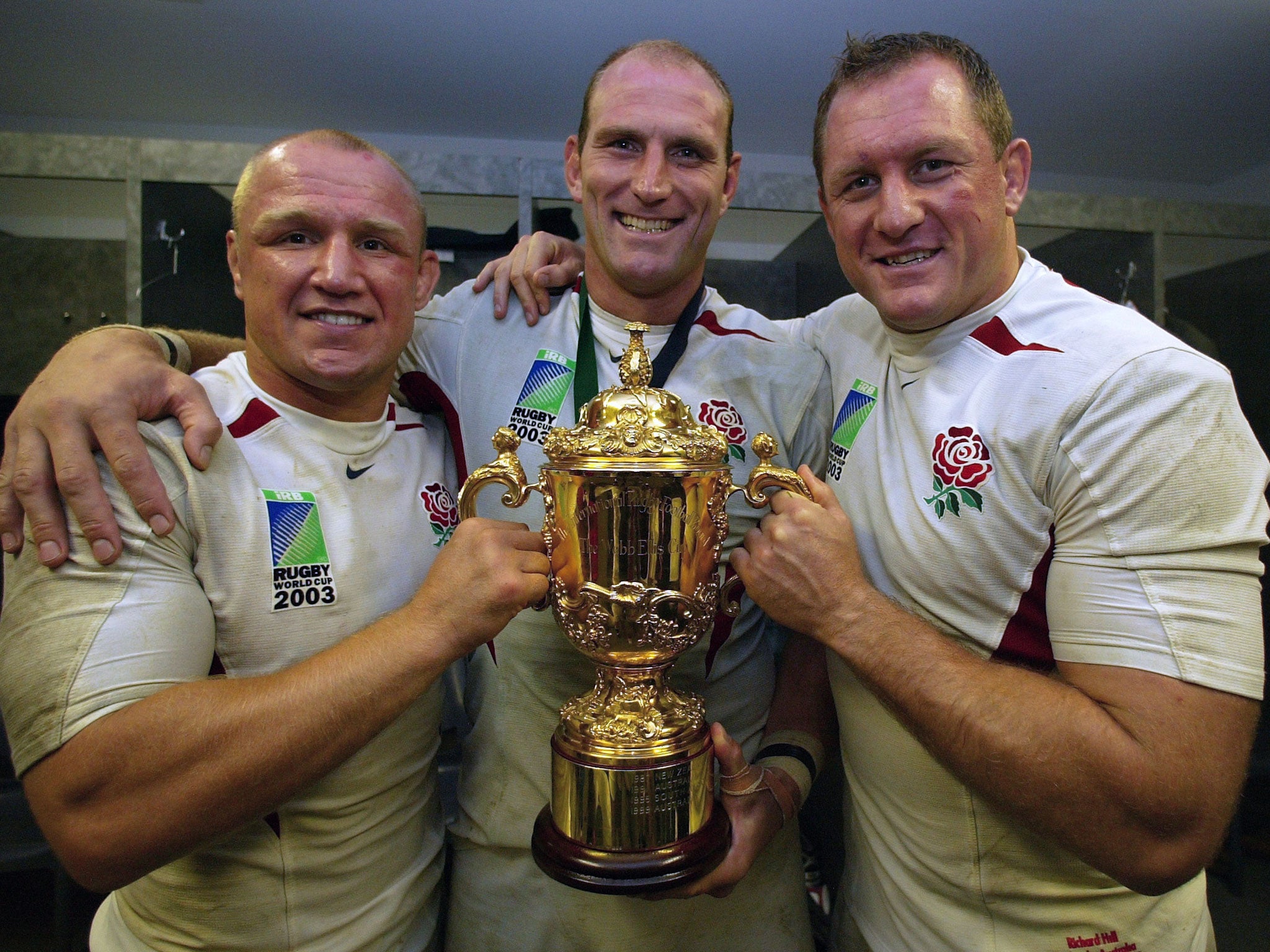
“Mentally sometimes you need an escape, and when I go and see a comedian I say ‘yeah, yeah, I know what that’s like’,” says Robshaw, allowing that dry humour to come through. “But I don’t fly a plane or take helicopter lessons. Mostly, I’ll go to the coffee shop to learn the business or play a bit of golf.”
He and his singer partner Camilla Kerslake enjoy taking Rico the dog for walks in the park near their Kingston home (he’s an Affenpinscher, reminiscent of a black Scottish terrier). “The way rugby is going with sponsors and TV crews and so on – getting the game out there, getting it into parks – it is brilliant. You see hundreds of kids playing in the rain, mucking around and really enjoying it. That is what I did.”
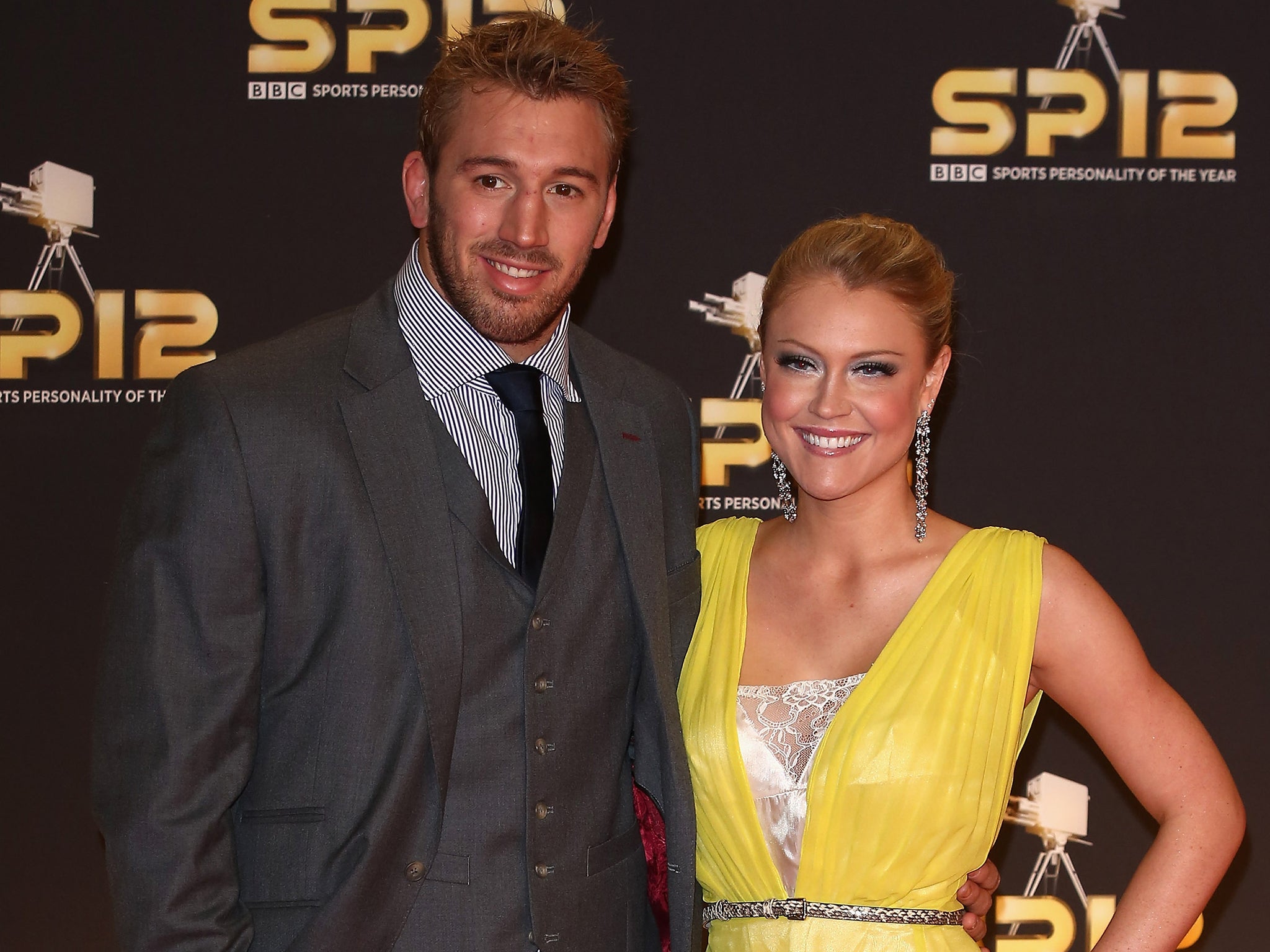
Two weeks ago after England’s second win in this Six Nations against Italy, Robshaw slipped momentarily amid the customary cluster of microphones, saying “Ant Allen” as a team-mate’s name instead of “Ant Watson”. Allen, a sometime England player not in the current squad, was with Robshaw at Millfield; they celebrated together on the November morning in 2003 when Martin Johnson’s England won the World Cup in Australia.
“We were all jumping around and everyone was practising their Jonny Wilkinson drop goals off both feet and missing them,” Robshaw recalls. “It was brilliant and of course you want to replicate that [now].” After all, at 28, he has yet to play in a World Cup or on a Lions tour.
Shortland remembers that time too, but for a different reason: “I have never told Chris this, but when he was in his final year, I had a coach of the England Under-19 team in my office. I was pushing Chris and he said to me, ‘I’m sorry, Steve, he won’t be a professional rugby player’. Yet he’s done more than pull through. He’s nailed it, he’s climbed the mountain.”
There is no need to name and shame that Under-19s coach now. He was not alone in reading Chris Robshaw wrong.
NatWest are proud to support Rugby. Current account customers can win exclusive rugby experiences. It’s not who you know, it’s who you bank with. Visit natwest.com/rugbyreward
Join our commenting forum
Join thought-provoking conversations, follow other Independent readers and see their replies
Comments
Bookmark popover
Removed from bookmarks